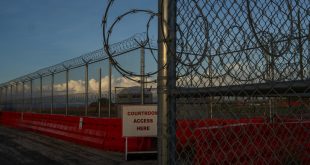WASHINGTON — President Biden will unveil an infrastructure plan on Wednesday whose $2 trillion price tag would translate into 20,000 miles of rebuilt roads, repairs to the 10 most economically important bridges in the country, the elimination of lead pipes and service lines from the nation’s water supplies and a long list of other projects intended to create millions of jobs in the short run and strengthen American competitiveness in the long run.
Biden administration officials said the proposal, which they detailed in a 25-page briefing paper and which Mr. Biden will discuss in an afternoon speech in Pittsburgh, would also accelerate the fight against climate change by hastening the shift to new, cleaner energy sources, and would help promote racial equity in the economy.
The spending in the plan would take place over eight years, officials said. Unlike the economic stimulus passed under President Barack Obama in 2009, when Mr. Biden was vice president, officials will not in every case prioritize so-called shovel ready projects that could quickly bolster growth.
But even spread over years, the scale of the proposal underscores how fully Mr. Biden has embraced the opportunity to use federal spending to address longstanding social and economic challenges in a way not seen in half a century. Officials said that, if approved, the spending in the plan would end decades of stagnation in federal investment in research and infrastructure — and would return government investment in those areas, as a share of the economy, to its highest levels since the 1960s.
The proposal is the first half of what will be a two-step release of the president’s ambitious agenda to overhaul the economy and remake American capitalism, which could carry a total cost of as much as $4 trillion over the course of a decade. Mr. Biden’s administration has named it the “American Jobs Plan,” echoing the $1.9 trillion pandemic relief bill that Mr. Biden signed into law this month, the “American Rescue Plan.”
“The American Jobs Plan,” White House officials wrote in the document detailing it, “will invest in America in a way we have not invested since we built the interstate highways and won the Space Race.”
While spending on roads, bridges and other physical improvements to the nation’s economic foundations has always had bipartisan appeal, Mr. Biden’s plan is sure to draw intense Republican opposition, both for its sheer size and for its reliance on corporate tax increases to pay for it.
Administration officials said the tax increases in the plan — including an increase in the corporate tax rate and a variety of measures to tax multinationals on money they earn and book overseas — would take 15 years to fully offset the cost of the spending programs.
The spending in the plan covers a wide range of physical infrastructure projects, including transportation, broadband, the electric grid and housing; efforts to jump-start advanced manufacturing; and other industries officials see as key to the United States’ growing economic competition with China. It also includes money to train millions of workers, as well as money for initiatives to support labor unions and providers of in-home care for older and disabled Americans, while also increasing the pay of the workers who provide that care.
Many of the items in the plan carry price tags that would have filled entire, ambitious bills in past administrations.
Among them: a total of $180 billion for research and development, $115 billion for roads and bridges, $85 billion for public transit, and $80 billion for Amtrak and freight rail. There is $42 billion for ports and airports, $100 billion for broadband and $111 billion for water infrastructure — including $45 billion to ensure no child ever is forced to drink water from a lead pipe, which can slow children’s development and lead to behavioral and other problems.
The plan seeks to repair 10,000 smaller bridges across the country, along with the 10 most economically significant ones in need of a fix. It would electrify 20 percent of the nation’s fleet of yellow school buses. It would spend $300 billion to promote advanced manufacturing, including a four-year plan to restock the country’s Strategic National Stockpile of pharmaceuticals, including vaccines, in preparation for future pandemics.
In many cases, officials cast those goals in the language of closing racial gaps in the economy, sometimes the result of previous federal spending efforts, like interstate highway developments that split communities of color or air pollution that affects Black and Hispanic communities near ports or power plants.
Officials cast the $400 billion spending on in-home care in part as a salve to “underpaid and undervalued” workers in that industry, who are disproportionately women of color.
Mr. Biden’s pledge to tackle climate change is embedded throughout the plan. Roads, bridges and airports would be made more resilient to the effects of more extreme storms, floods and fires wrought by a warming planet. Spending on research and development could help spur breakthroughs in cutting-edge clean technology, while plans to retrofit and weatherize millions of buildings would make them more energy efficient.
The president’s focus on climate change is centered, however, on modernizing and transforming the United States’ two largest sources of planet-warming greenhouse gas pollution: cars and electric power plants.
A decade ago, Mr. Obama’s economic stimulus plan spent about $90 billion on clean energy programs intended to jump-start the nation’s nascent renewable power and electric vehicle industries. Mr. Biden’s plan now proposes spending magnitudes more on similar programs that he hopes will take those technologies fully into the mainstream.
It bets heavily on spending meant to increase the use of electric cars, which today make up just 2 percent of the vehicles on America’s highways.
The plan proposes spending $174 billion to encourage the manufacture and purchase of electric vehicles by granting tax credits and other incentives to companies that make electric vehicle batteries in the United States instead of China. The goal is to reduce vehicle price tags.
The money would also fund the construction of about a half-million electric vehicle charging stations — although experts say that number is but a tiny fraction of what is needed to make electric vehicles a mainstream option.
Mr. Biden’s plan proposes $100 billion in programs to update and modernize the electric grid to make it more reliable and less susceptible to blackouts, like those that recently devastated Texas, while also building more transmission lines from wind and solar plants to large cities.
It proposes the creation of a “Clean Electricity Standard” — essentially, a federal mandate requiring that a certain percentage of electricity in the United States be generated by zero-carbon energy sources like wind, solar and possibly nuclear power. But that mandate would have to be enacted by Congress, where prospects for its success remain murky. Similar efforts to pass such a mandate have failed multiple times over the past 20 years.
The plan proposes an additional $46 billion in federal procurement programs for government agencies to buy fleets of electric vehicles, and $35 billion in research and development programs for cutting-edge, new technologies.
It also calls for making infrastructure and communities more prepared for the worsening effects of climate change, though the administration has so far provided few details on how it would accomplish that goal.
But according to the document released by the White House, the plan includes $50 billion “in dedicated investments to improve infrastructure resilience.” The efforts would defend against wildfires, rising seas and hurricanes, and there would be a focus on investments that protect low-income residents and people of color.
The plan also includes a $16 billion program intended to help fossil fuel workers transition to new work — like capping leaks on defunct oil wells and shutting down retired coal mines — and $10 billion for a new “Civilian Climate Corps.”
Mr. Biden would fund his spending in part by eliminating tax preferences for fossil fuel producers. But the bulk of his tax increases would come from corporations generally.
He would raise the corporate tax rate to 28 percent from 21 percent, partly reversing a cut signed into law by President Donald J. Trump. Mr. Biden would also take a variety of steps to raise taxes on multinational corporations, many of them working within an overhaul of the taxation of profits earned overseas that was included in Mr. Trump’s tax law in 2017.
Those measures would include raising the rate of a minimum tax on global profits and eliminating several provisions that allow companies to reduce their American tax liability on profits they earn and book abroad.
Mr. Biden would also add a new minimum tax on the global income of the largest multinationals, and he would ramp up enforcement efforts by the Internal Revenue Service against large companies that evade taxes.
Administration officials expressed hope this week that the plan could attract bipartisan support in Congress. But Republicans and business groups have already attacked Mr. Biden’s plans to fund the spending with corporate tax increases, which they say will hurt the competitiveness of American companies. Administration officials say the moves will push companies to keep profits and jobs in the United States.
Joshua Bolten, the president and chief executive of the Business Roundtable, a powerful group representing top business executives in Washington, said on Tuesday that his group “strongly opposes corporate tax increases as a pay-for for infrastructure investment.”
“Policymakers should avoid creating new barriers to job creation and economic growth,” Mr. Bolten said, “particularly during the recovery.”
Coral Davenport and Christopher Flavelle contributed reporting.
 Top Naija News – daily news updates in Nigeria | breaking news naija Welcome to Top Naija News, your ultimate destination for daily news updates in Nigeria. We are a dedicated news curation blog from various sources.
Top Naija News – daily news updates in Nigeria | breaking news naija Welcome to Top Naija News, your ultimate destination for daily news updates in Nigeria. We are a dedicated news curation blog from various sources.




